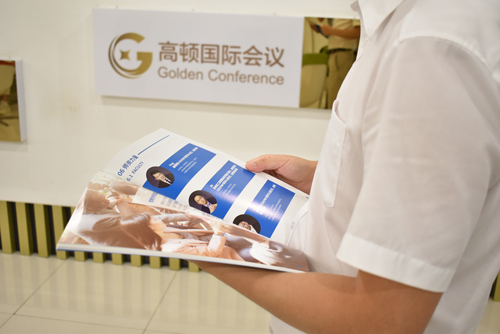
ACCA必考知识点:中国进出口贸易模式全解析
- 2018年01月09日
- 13:33
- 来源:高顿财经
- 阅读:(76)
2024ACCA备考资料
- 财务英语入门
- 历年考题答案
- 2024考纲白皮书
- 2024考前冲刺资料
- 高顿内部名师讲义
- 高顿内部在线题库
摘要:加工贸易(processing trading)和一般贸易(general trading)两种出口贸易模式方案在出口型制造企业中的运用,和它们不同的退税成本分析,是ACCA P6(中国税法)常...
加工贸易(processing trading)和一般贸易(general trading)两种出口贸易模式方案在出口型制造企业中的运用,和它们不同的退税成本分析,是ACCA P6(中国税法)常考的主题。尽管从2010年开始ACCA取消了P6中国税法的考试,但是从学习的角度看,ACCA学员懂得一些进出口贸易方面的知识还是很有必要的。在这里我跟大家分享一下。
加工贸易和一般贸易作为我国传统的进出口贸易,在过去30多年的改革开放发展里,对促进我国的经济增长、就业、税收、创汇等方面,及推进我国工业化进程有着功不可没的巨大贡献。
什么是加工贸易?加工贸易,是指经营企业进口全部或者部分原辅材料、零部件,经加工或装配后,将制成品复出口的经营活动,包括来料加工和进料加工。一般情况下进口、出口均不缴关税、增值税,但如果产品内销需要补缴关税、增值税。
Processing Trade is a program which permits a company to import raw materials free of duty/VAT for producing export goods.the program allows for the upfront exemption of duty and VAT on imported raw materials,which are considered to be in a“bonded”state.these bonded raw materials must be tracked and reconciled to the final exported finished goods,It includes“Sell&buy manufacturing”and“Toll manufacturing”.
进料加工,是指国内有外贸经营权的单位用外汇,购买进口部分或全部原料、材料、辅料、元器件、配套件和包装物料,加工半成品或成品后再返销出口的业务。这类业务中,经营的企业以买主的身份与国外签订购买原材料的合同,又以卖主的身份签订成品销售合同。进料加工进口和出口的国外客户可能是同一客户,也可能是不同的客户。
Buy&sell manufacturing,it is also called‘import processing’,the Mainland factory purchases raw materials from the non-Mainland entity for their own account,owns the goods through production and sells the finished goods the non-Mainland entity.they earn a profit on sale of goods.
来料加工,它通常是指加工一方由国外另一方提供原料、辅料和包装材料,按照双方商定的质量、规格、款式加工为成品,交给对方,自已收取加工费。有的是全部由对方来料,有的是一部分由对方来料,一部分由加工方采用本国原料的辅料,加工方经营企业不需要付汇进口,按照境外企业的要求进行加工或者装配,只收取加工费,制成品由境外企业销售的经营活动。
Toll manufacturing is also called“Contract processing”,refers to a situation where a non-Mainland entity enters into a processing agreement with a Mainland factory under which the non-Mainland entity supplies raw materials to the Mainland factory for processing.The processed goods must be delivered back to the non-Mainland entity for onward export sales;the Mainland factory does not own the raw materials and finished goods,in other words the ownership of raw materials does not change during the entire manufacturing process.The finished goods have to be exported and sold outside the Mainland.Revenue is earned through“processing fee”.
一般贸易,是指拥有进出口经营权的企业在国内采购全部原材料、辅料,加工成品后出口给海外的客户,或是进口原材料或商品,销售给国内的客户。进口时要缴关税、增值税,出口时可以办理出口退税退还增值税。
General Trade,The legal entity who has import&export authority to purchase RM locally and sell FG to oversea customer.Or import RM from oversea supplier and sell them to local customer.It need to pay duty and VAT when it imports the goods from oversea suppliers,and can apply for VAT refund when it export goods to oversea customers.
加工贸易模式和一般贸易模式下出口退税的计算方法是不同的,因此出口退税成本也就不同。
下面我举例说明这几种出口模式的出口退税是如何计算的。
1.来料加工模式:企业出口货物只享受免税,不能退税。如果有部分国内采购的原材料,支付的增值税额要计入产品成本。
2.进料加工:企业出口货物可以享受免、抵、退税。
例:某外商投资企业与境外客户签订进料加工进出口合同(海关手册),5月,进口料件到岸价格折合人民币318万元,当月将部分完工产品出口,FOB价折合人民币400万元。该企业计划分配率为60%,该企业征税率17%,退税率16%。
则采用实耗法确定的免税购进原材料价格:=400×60%=240(万元)
当期不予退税成本=(400-240)×(17%-16%)=1.6(万元),1.6万元要计入产品成本。
3.一般贸易模式:企业出口货物可以享受免、抵、退税。
例:某自营出口生产企业是增值税纳税人,出口货物的征税税率为17%,退税率为16%。5月购进原材料一批,取得的增值税专用发票注明的价款200万元,外购货物准予抵扣进项税款34万元。本月出口货物销售折合人民币400万元。
当期免抵退税不得免征和抵扣税额(当期不予退税成本)=400 x(17%-16%)=4万。4万元要计入出口产品成本。
从以上分析得出结论:出口型生产企业可以根据原材料采购的不同情况,选择不同的出口模式,减少出口环节的流转税成本。
推荐:考生都在用的ACCA资料>>【领取2023ACCA完整资料】 (资料包含ACCA必考点总结,提升备考效率,加分必备)
版权声明:
1、凡本网站注明“来源高顿ACCA”或“来源高顿、ACCA学习帮”,的所有作品,均为本网站合法拥有版权的作品,未经本网站授权,任何媒体、网站、个人不得转载、链接、转帖或以其他方式使用。
2、经本网站合法授权的,应在授权范围内使用,且使用时必须注明“来源高顿ACCA”或“来源高顿、ACCA学习帮”,并不得对作品中出现的“高顿”字样进行删减、替换等。违反上述声明者,本网站将依法追究其法律责任。
3、本网站的部分资料转载自互联网,均尽力标明作者和出处。本网站转载的目的在于传递更多信息,并不意味着赞同其观点或证实其描述,本网站不对其真实性负责。
4、如您认为本网站刊载作品涉及版权等问题,请与本网站联系(邮箱fawu@gaodun.com,电话:021-31587497),本网站核实确认后会尽快予以处理。
分享到:
急速通关计划
ACCA全球私播课
周末面授班
其他课程
报考指南
最新ACCA备考机经
价值1288元 考试必备资料 免费领取 高顿ACCA研究院独家出品
价值1288元 考试必备资料 免费领取 高顿ACCA研究院独家出品
领取ACCA资料包
大家都在看
-
阅读(9579)
-
阅读(9083)
-
阅读(9068)
-
阅读(8764)
-
阅读(8739)
日排行 • 周排行
- 1 2023年备考acca有什么建议?需要备考多久?
- 2 2024年cpa和acca区别在哪?适合考哪个?
- 3 2023年acca资格证书获取条件是什么?附申领流程!
- 4 2023年acca英文全称怎么读?能带来什么好处?
- 5 2023年acca和cpa区别都在哪?进四大哪个更有优势?
- 6 2023年特许公认会计师公会是什么?简称叫啥?
- 7 2023年国际会计师acca证书科普,新手必看!
- 8 2024年acca方向班培训内容?网课如何选择?
- 9 2023年acca与cma证书介绍,多方面对比它们的区别!
- 10 2024年accaf3没过正常吗?究竟问题在哪?
- 1 2023年ACCA考试科目通过率排名:哪些科目最容易通过?
- 2 2024年参加12月acca考试带什么?准考证可以打印了吗?
- 3 2024年accaf1裸考能过吗?历年通过率多少?
- 4 定了!2023年acca要考几年能考下来?要考几科才可以拿出去面试?
- 5 2024年acca要考几门?按什么顺序考?
- 6 2023年申请acca免考科目的条件?最多可以免考几门科目?
- 7 2023年哪些大学财会专业比较好?没错了,就是这几所!
- 8 acca学姐来解答2023年acca是什么考试?各科目全称是什么?
- 9 速看!2023年会计学acca是什么意思?一文教你看懂!
- 10 定了!2023年acca考位满了还有可能报上吗?
-
ACCA考试热门词
-
ACCA内部备考资料高顿ACCA为您免费提供全新ACCA资料,包括历年考题、考官报考、考官文章、考纲解析、学霸笔记、内部讲义等,同时还助您了解新学员报名注册指南、机考报考考试引导、OBU&UOL申请攻略等,点击免费获取。
-
- ACCA常见问题
- ACCA推荐阅读
- ACCA考试资讯
- ACCA原创文章
- ACCA学霸分享
- ACCA常见问答







